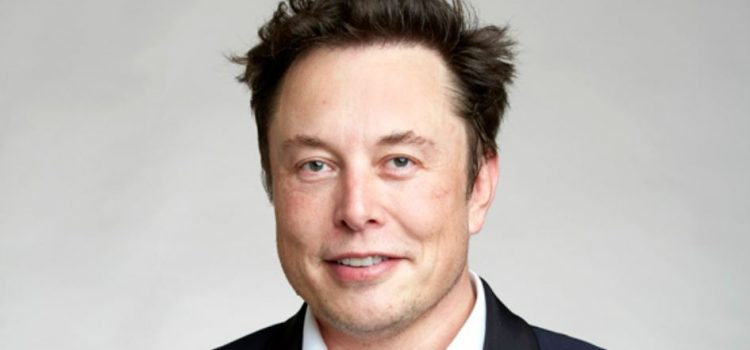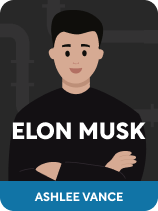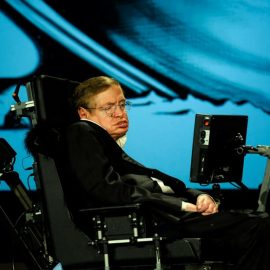

This article is an excerpt from the Shortform book guide to "Elon Musk" by Ashlee Vance. Shortform has the world's best summaries and analyses of books you should be reading.
Like this article? Sign up for a free trial here .
Why is Elon Musk so successful? What traits does he have? What management methods does he use?
Elon musk is so successful because of his personality traits and his management methods. Through a combination of being motivated by the future, having a high risk tolerance, hiring exceptional employees, maintaining control of his companies, and setting extreme deadlines, Musk’s businesses have achieved impressive results.
Continue reading to find out why Elon Musk is so successful.
The Points that Make Elon Musk Successful
Why is Elon Musk so successful? While Musk has many traits and management methods that he used to build his companies, Vance discusses five important factors that helped Musk succeed.
1. Future-Oriented Motivations
Why is Elon Musk so successful when it comes to business ideas? Vance believes Musk’s goals and actions are all motivated by the future. He puts present-day concerns aside to create a better future for humanity. Musk believes the survival of the human race depends on becoming a multi-planetary species—or living on Mars—and by creating sources of sustainable energy. The missions of Tesla and SpaceX are based on those two goals. Musk’s future-oriented mindset doesn’t prioritize his companies’ financial success over his goal to improve the future—to him, these aspects are inherently tied together.
(Shortform note: In prioritizing the future, Musk is thinking of the “infinite game.” In The Infinite Game, Simon Sinek explores the differences between finite games—where players play to win—and infinite games—where players play to survive, thrive, and keep playing the game. And Musk seems to be playing the ultimate game—humanity’s survival.)
2. High-Risk Tolerance
Why is Elon Musk so successful in high-stress situations? Musk’s ability to handle stress complements his high-risk tolerance. This means he doesn’t create any safety nets for himself should he fail. This mindset has given him an edge in his professional life. He’s willing to risk everything—his money, his possessions, his health, and so on—to make his vision a reality. Most people would find this level of risk extremely stressful, but Musk sees it as necessary in order to achieve his goals. He’s willing to invest all of his time and money into his businesses for the possibility of even bigger gains.
(Shortform note: While Musk believes in and encourages others to take risks—especially when they’re young—not everyone has his natural high level of risk tolerance. In Who Will Cry When You Die, Robin Sharma offers tips to help you get out of your comfort zone and increase your risk tolerance. He recommends taking small risks—such as striking up a conversation with someone new—and resisting the urge to think about the worst-case scenario, which is unlikely to occur.)
3. Exceptional Employees
Why is Elon Musk so successful when it comes to hiring? Vance believes much of Musk’s success stems from his ability to find and hire exceptional people. He has an eye for talent, and he appreciates people who are hard workers and critical thinkers. These employees are also efficient, and they can do the work of multiple people. When every employee is doing exceptional work, the combination of their efforts results in something exceptional as well.
(Shortform note: While Musk values star players for their efficiency and hard work, he may have a tendency to overwork—and even injure—these exceptional employees. According to incident reports, Tesla called for ambulances over 100 times between 2014 and 2017 for reasons such as dizziness, seizures, abnormal breathing, and other injuries. One technician noted that sometimes when someone got hurt on the job, another employee was sent to work around that person while they were still injured on the floor.)
4. Retain Control of His Companies
Why is Elon Musk so successful when it comes to retaining employees? After his experience at Zip2 and PayPal, Musk valued maintaining control of his companies. He knows leadership positions give him the most influence, allowing him to run his business how he wants to. Vance explains that Musk doesn’t have a desire for totalitarian control. Instead, he’s concerned about making sure things get done correctly. Musk believes there are certain things that need to be done to achieve his vision, and he thinks he’s the best one to make sure those things happen. This tactic has helped Tesla and SpaceX succeed, since Musk has the vision and drive to effectively lead and make business decisions.
(Shortform note: Musk has retained control as CEO of his companies because he believes he’s the best one to move his businesses toward his goals—to keep the companies playing in the infinite game, where players play to keep playing, not to win. In The Infinite Game, Simon Sinek explains that your CEO must have an infinite mindset to lead your company through its infinite game properly, which can be the difference between long-term survival or failure. Like Musk, your CEO needs an infinite mindset to lead your company through its infinite game and to look beyond her organization and envision where the company will head next.)
5. Ambitious Deadlines
Why is Elon Musk so successful when it comes to getting things done quickly? In all of his companies, Musk set ambitious deadlines for both himself and others. He told employees, consumers, and executives that certain tasks or products would be completed faster than anyone thought possible. Vance believes he wasn’t setting an arbitrary timeline—this was genuinely how long Musk believed it would take to complete certain tasks. (Shortform note: While Musk uses ambitious deadlines to achieve results, experts debate their effectiveness and whether they’re worth the stress. Many people say they work better under deadline pressure, but research indicates the opposite. Under deadline pressure, people feel stressed, make mistakes, and have to redo work, which ends up taking more time. Often the mistakes—such as product flaws and cost overruns—have long-term financial consequences.)

———End of Preview———
Like what you just read? Read the rest of the world's best book summary and analysis of Ashlee Vance's "Elon Musk" at Shortform .
Here's what you'll find in our full Elon Musk summary :
- A look into Elon Musk’s childhood and early companies
- Musk's roles in SpaceX and Tesla, and later, in SolarCity
- The traits and management methods that helped Musk succeed






